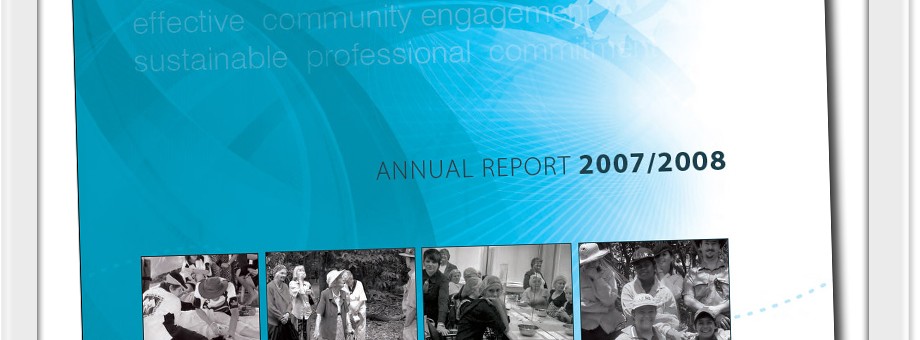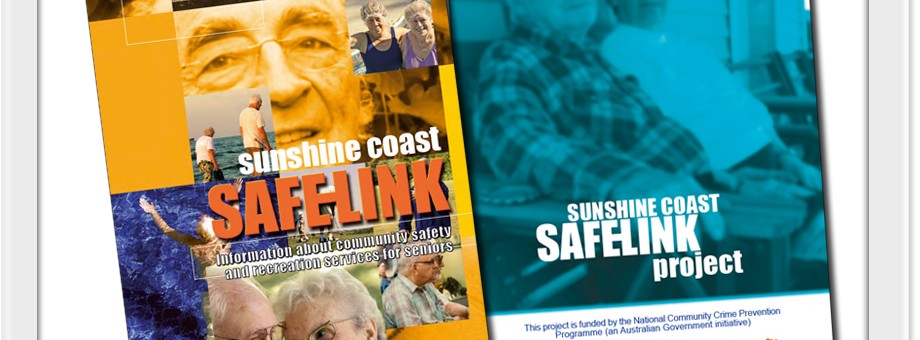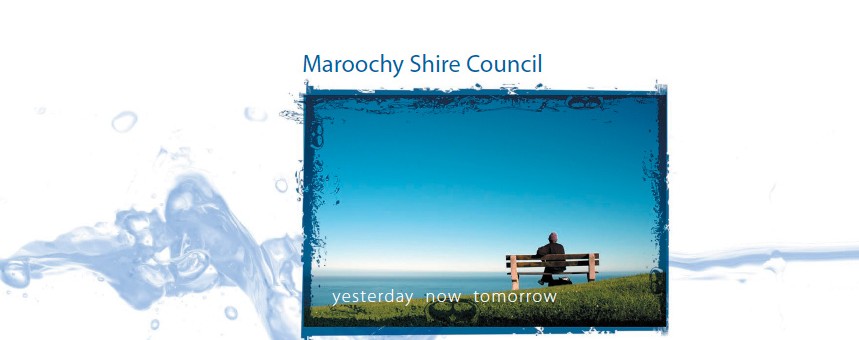August 4, 2012
Project: Booklet design and development
Client: Community Solutions
View Project: pdf file
The Queensland Government provided funding to Community Solutions to produce Young at Heart to get more Queenslanders active through sport and recreation. Our sunshine coast based book design and printing company was responsible for the overall book design and production.
Page 20 sample:
physical activity
How much physical activity is enough?
Thirty minutes of moderate intensity physical activity is recommended daily. This 30 minutes can be accumulated through-out the day. For example, 10 minutes of activity three times per day may be easier for you to achieve.
If you have been physically inactive for a long period of time, or suffer from an illness or injury it is very important to consult with your doctor before becoming active again.
Even if you consider yourself to be in good health it is important to be realistic with your goals when you start physical activity. Begin slowly and increase your activity over time. For example, 10 minutes of activity once a day may feel manageable at first and then every two weeks you could increase this amount until you reach your target of 30 minutes per day.
If you get into a regular activity routine and then it is interrupted for several weeks, it is important to gradually build the intensity level back up when you recommence your routine. Maintaining adequate physical activity levels may have health benefits such as:
- Reduction of the risk of illness and diseases such as some cancers, heart disease, stroke, high blood pressure and type 2 diabetes.
- Increasing muscle mass and reducing the loss of bone density which can prevent injuries from falls.
- Increased capacity to recover from illness.
- Sleep improvement.
- Weight management.
Physical activity can also influence emotional health. It can help you:
- Increase your energy levels and vitality.
- Feel more relaxed.
- Improve social interactions.
- Reduce the occurrence of depression.
As you age being active is extremely important for maintaining health. In fact, research has shown that much of the physical decline associated with old age may be due to a lack of physical activity.
Why is physical activity important?
Page 17 sample:
Loss of Appetite
Difficulties maintaining an adequate nutrient intake are common in older age and a sudden or continuous loss of appetite can result in unintended weight loss. This can pose several health risks such as poor memory, increased susceptibility to illness, bone loss, decreased muscle strength, hypothermia, constipation and depression.
Throughout your lifetime you may have heard about the importance of maintaining a healthy body weight.
A convenient way to assess whether your weight is in the healthy range is to measure your waist line. Measurements are best taken in line with your belly button, directly against the skin and after breathing out normally. For men a measurement more than 94cm and for women a measurement more than 80cm is associated with an increased risk of chronic disease.
While weight guides are useful it is important to remember that every individual is different. If you are worried about being underweight or overweight you must consult with your health care provider. It is normal for our appetite to vary from day to day however, if you experience a sudden change in appetite or believe that your eating habits are not healthy it is important to explore the reasons why this may be occurring.
Some of the following tips may be helpful if you are having trouble with your appetite:
Eat small meals frequently. For example, include breakfast, morning tea, lunch, afternoon tea, dinner and supper in your daily routine. Ensure you eat sufficient amounts of a variety of foods.
Eating with a friend can improve your appetite.
Enjoy a meal out. Local service clubs often have reasonably priced meals and may provide opportunities to eat with others.
Prepare larger quantities of food when you cook and freeze meal size portions for days when you do not want to cook. Alternatively, purchase frozen meals from the supermarket.
Make an eating plan and check it off daily to monitor your progress. Share your goals with a friend who can motivate and encourage your eating patterns.



















